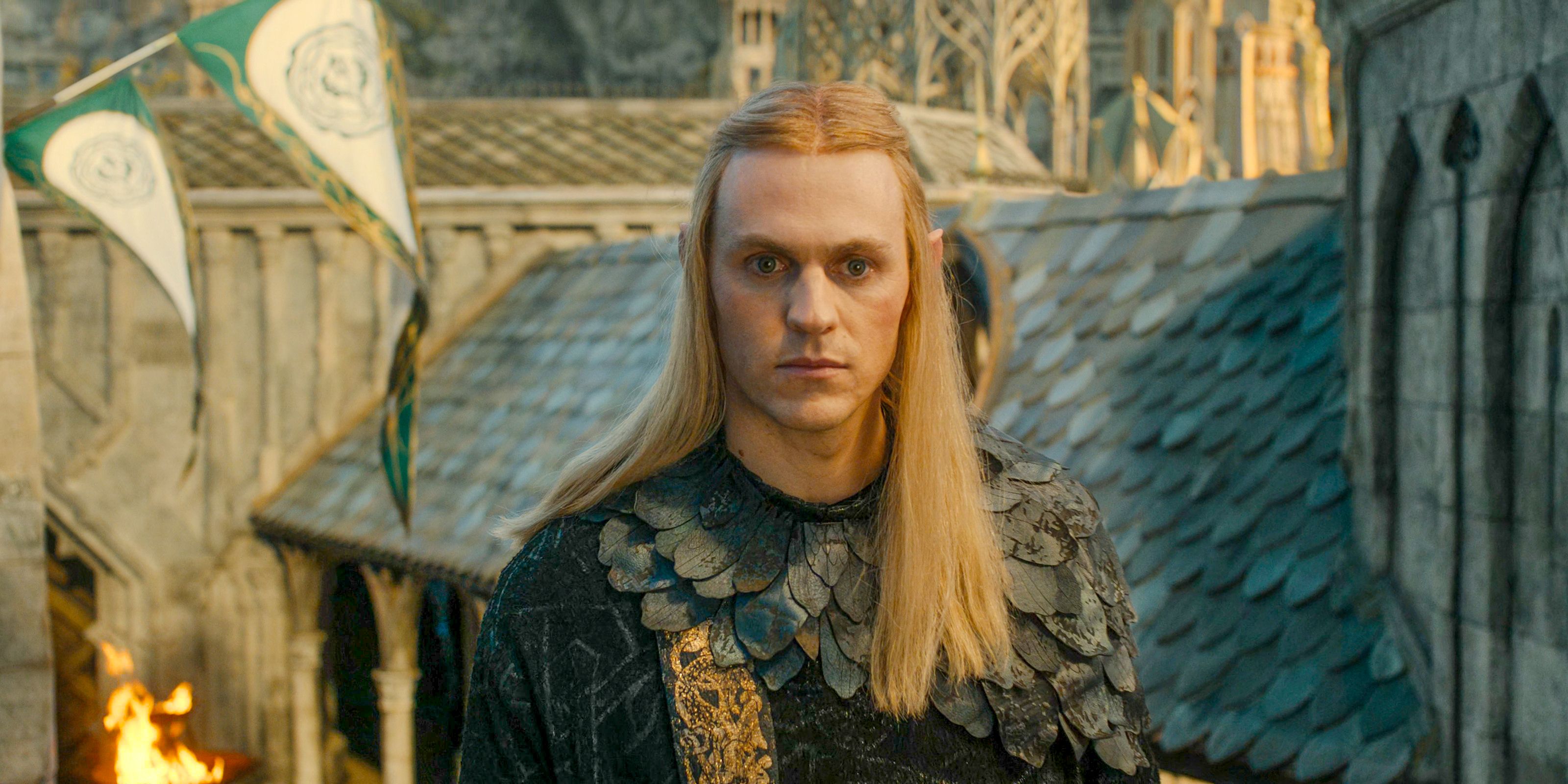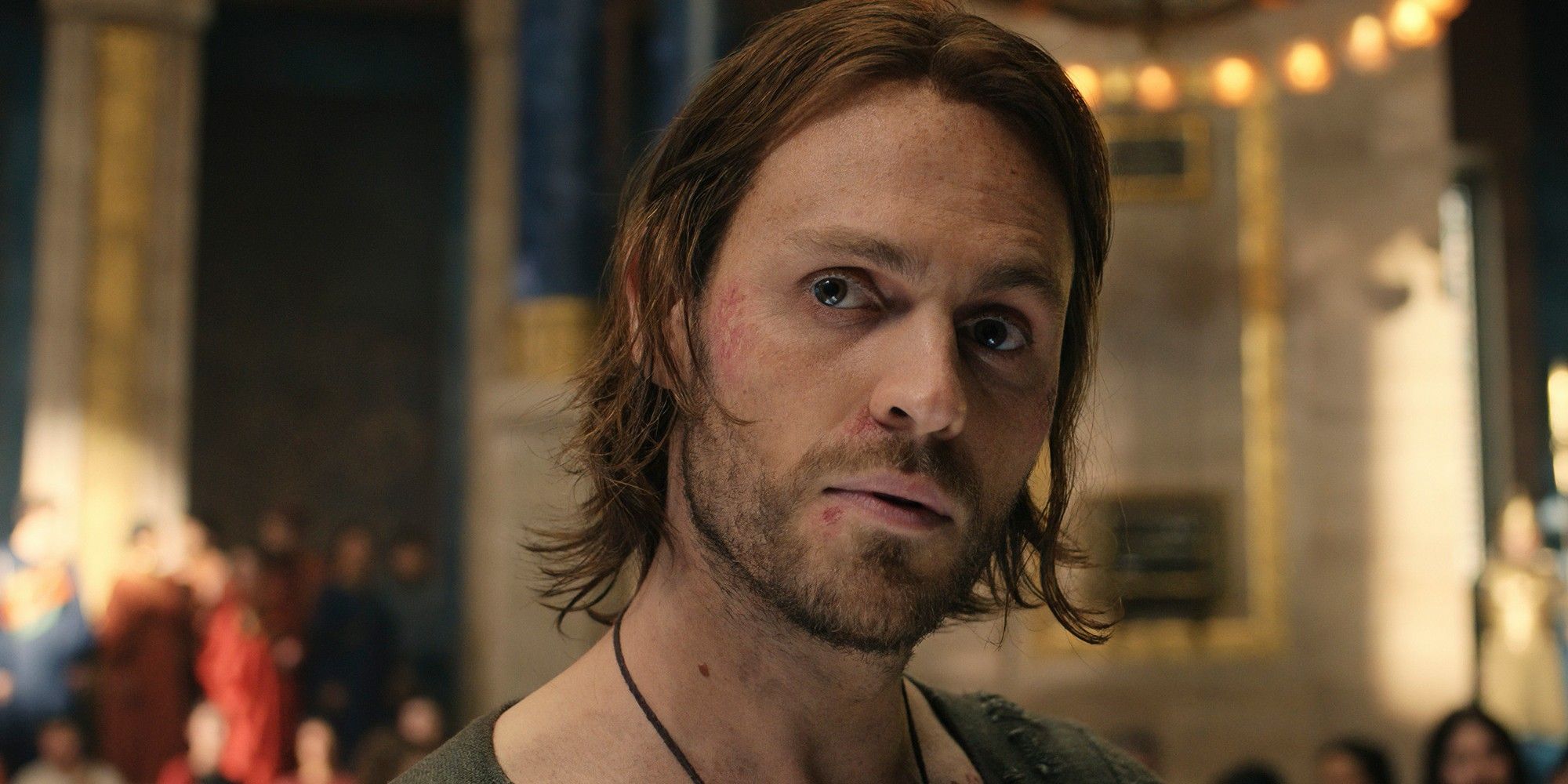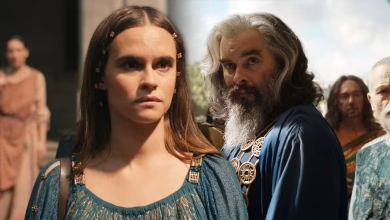The Lord of the Rings: The Rings of Power has been diving deep into its main villain and even answered one question that the movies didn’t quite tackle. Sauron is the eponymous Lord of the Rings of both the Amazon show and the book it is based on by J.R.R. Tolkien. Taking up more space in the TV series than he really did in the book or movies, Sauron is getting explored in the show in depth. For better or worse, this is leading to a wider understanding of literature’s greatest villain.
As one of the Ainur, the second-created species in Lord of the Rings’ world, Sauron was of the Maiar order, rather than the Valar. The Valar sat above the Maiar as the most powerful beings after the One creator, Eru Ilúvatar himself. However, some Maiar were “well nigh as great” as the Valar themselves, according to the 1977 anthology of Lord of the Rings myths, The Silmarillion. It is easy to see how Sauron got so far, but not so easy to see why. The Rings of Power is investigating why Sauron wanted to rule.
The Lord Of The Rings Never Gives Sauron’s Perspective Or His Goal For Middle-earth

Peter Jackson’s Hobbit and Lord of the Rings movies don’t demonstrate why Sauron wanted to dominate Middle-earth, despite making it clear that that was his intention. To be fair to Peter Jackson and Warner Bros., this wasn’t totally clear in the book, either. The oppressive terror evoked by Sauron in the book was central to convincing readers of his effect on Frodo. Offering his perspective may have lessened this effect somewhat, so it’s easy to see why it wasn’t done. The movies ran with this tactic too, exploiting fear of the unknown to make Sauron an unforgettable high fantasy villain.
The book and movies resist offering Sauron’s perspective to tell their story better, but The Rings of Power is taking a different approach.
The movies actually went a step further in dehumanizing Sauron than the books did, ignoring Tolkien’s suggestions of Sauron’s physical body and making him a giant, disembodied eye. The Lord of the Rings movies downplayed Sauron’s role in the book by making this change, making him seem like something of a disabled ghost, waiting to get his ring back and assume corporeal completion. The book and movies resist offering Sauron’s perspective to tell their story better, but The Rings of Power is taking a different approach and exposing more of his personality.
The Rings Of Power Season 2 Finally Addresses What Sauron Wants With Middle-earth

By the end of The Rings of Power season 2, the show had addressed the question of why Sauron wanted to rule Middle-earth in the first place, opening a can of worms in Lord of the Rings only previously addressed by The Silmarillion, Unfinished Tales, and The History of Middle-earth. Casual Lord of the Rings fans aren’t normally keyed in on this level of lore. However, after Halbrand’s speech to Galadriel in season 1 and Annatar’s speeches to Galadriel and Celebrimbor in season 2, viewers now know that Sauron believed he was fixing a divided, broken world.
After The Rings of Power season 1’s ending revealed that one of the series’ main characters, Halbrand, was actually Sauron, season 2 dived into the villain openly. Halbrand appeared to be an original character and a roguishly likable one at that. This was all a part of The Rings of Power’s tactics – deceive the audience just as Galadriel was deceived. This made it more credible how even someone as powerful as Galadriel could be fooled, making Sauron’s pitch about fixing Middle-earth and healing the mess Morgoth made understandable. Of course, Sauron was far more dangerous than his pitch let on.
Despite What He Says, Sauron Doesn’t Really Have Middle-earth’s Best Interests In Mind

Now that the deception is complete and viewers, Galadriel, and Celebrimbor can see how dangerously persuasive Sauron is, The Rings of Power season 3 will continue in the same vein as season 2. That is to say, it will keep proving why Sauron’s promise to heal and fix Middle-earth is not to be believed by anyone with any less power than him. While it is only really by exploring wider Middle-earth lore that one can start to understand the rationale behind Sauron’s campaign for leadership, the bottom line is that he is not to be trusted.
Pursuing obsessive extremes led Sauron to justify the means with the end.
Sauron’s narrative around fixing Middle-earth was based on his distaste for “wasteful friction” and his need for order, according to Morgoth’s Ring. Pursuing obsessive extremes led Sauron to justify the means with the end, mercilessly killing and torturing to exert the rule that he deemed the most functional – his own. In doing so, Sauron had lost sight of his original goal. Although, in theory, he appreciated beauty and worked to protect it, his narcissistic arrogance meant that he would, hypocritically, kill anyone stopping him from doing so.
Sauron inherited this toxic combination of arrogance and dominance from Lord of the Rings villain Morgoth, who was the one to originally corrupt Sauron from his lofty status as one of Aulë’s greatest smiths. Sauron wasn’t fond of Orcs laughing at him behind his back, as per The Nature of Middle-earth, indicating that his arrogance may have been more easily shakeable than Morgoth’s and subject to underlying insecurity. This probably made him all the more bent on winning and controlling everything in his path in The Lord of the Rings, regardless of who and what he did or didn’t heal.








